Japan
Welcome to Japan, one of the World's most fascinating destinations. Here you can find a perfect blend of the modern and traditional, where futuristic neon signs stand side by side with ancient temples. It's also one of the great foodie destinations, and from casual street food to elegant Michelin starred cuisine, you will not go hungry!
Japan is a destination like no other, where a vision of the future intermingles with traditions of the past. It's not uncommon to interact with a robot in a hotel lobby, before crossing the street and entering a 1,000 year old temple. While Tokyo & Kyoto will be the bedrock of any itinerary, we also recommend spending a couple of nights at a hot spring resort, where you can relax and experience the Japanese countryside.

November 21st - 25th | Tokyo
November 25th - 27th | Matsumoto
November 27th - 30th | Kanazawa
November 30th - December 2nd | Kagaonsen
December 2nd - 6th | Kyoto
December 6th - 8th | Hiroshima
December 8th - 10th | Osaka
We have put together this Destination Guide for you, full of unique insights and ways to get excited before you travel, such as:
- Spotify playlists
- Dishes to try
- Helpful phrases
- Packing guide
- Tipping guides
Plus more!

Arrive into Haneda or Narita airport (time to be determined)
Independently proceed through immigration & customs, before collecting your luggage. An English-speaking assistant will greet you at the arrivals hall and escort you to your private transfer.
Proceed by private transfer to your hotel. From Haneda, this should take about 30 minutes.
One of the world’s most cutting-edge capitals, Tokyo is a city of contrasts. Famous for its sprawling neon-lit landscape it is also home to expansive parkland, peaceful shrines and temples, and lovingly tended gardens. On the surface, Tokyo is a mix of digital trends and conspicuous consumption, but dig deeper and you will find a city rooted deeply in the traditional culture. Shinto shrines and Buddhist temples stand close to skyscrapers as a reminder of a more contemplative time.

Check into your hotel and settle into your accommodations for the remainder of the day and evening.
The Palace Hotel Tokyo enjoys one of Tokyo’s most prestigious addresses, right next to the central Imperial Palace. This might be one of the more recent luxury hotels to open in Tokyo, but it has a long history; initially founded in 1947, the hotel reopened in May 2012 after a complete refurbishment taking three years.
The rooms in the Palace Hotel Tokyo are spacious and made with quality materials and attention to detail. Of all the hotels in Tokyo, the Palace Hotel Tokyo alone offers rooms with balconies.

Palace Hotel
Deluxe King
- Breakfast Included

Take a full-day tour of this fascinating city with a local guide.
Meet your guide in the lobby of your hotel in the morning.
Today you will have a private vehicle, driver & guide at your disposal as you explore Tokyo.
For the discerning traveler seeking an immersive and exclusive cultural experience, a visit to a Japanese fish market is a must. Witness the spectacle of the auction process and observe the skilled fishmongers at work. The outer market of Tsukiji is a great place to not only see seafood but also kitchen utensils and other Japanese ingredients.
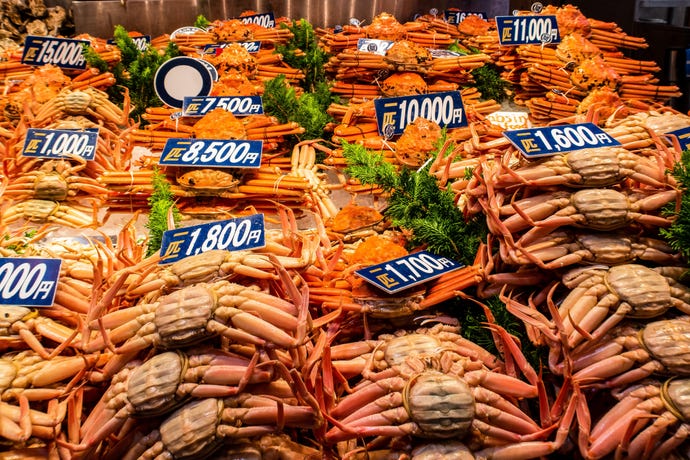
Meiji Shrine was built nearly 100 years ago to commemorate Emperor Meiji’s contribution to modern Japan. The shrine is entirely surrounded by a forest, with an area of 70 hectares of land and over 120,000 trees, all of which were donated to the shrine from different parts of Japan.
Although rather young compared with other shrines, Meiji shrine has its own dramatic story to tell. While the original construction of the shrine was completed in 1926, the shrine was destroyed during the bombings of World War II and rebuilt in 1958.
If you’re lucky, you’ll spot a couple on their wedding day, making their way through the shrine’s grounds on their way to their ceremony.
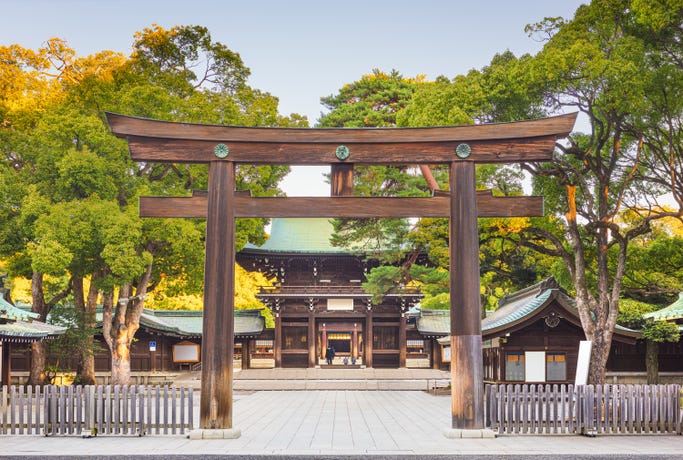
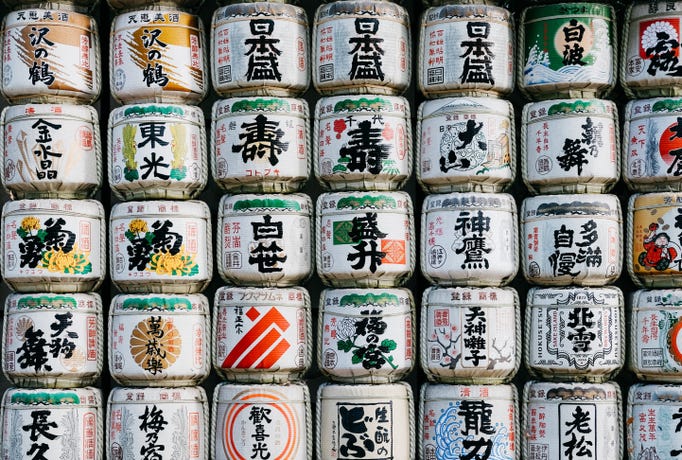
Harajuku’s Takeshita Street - This narrow, crowded street is lined with shops that sell the latest fashion trend, sweets, and other interesting items. It is in this area that some of the outrageous fashion that Japan is known for scenset.
As the trendy streets of Harajuku end, the amazing architecture of Omotesando begins. With seemingly endless modern, cutting-edge architecture, great shopping, and delicious restaurants, Omotesando is Tokyo’s Champs-Elysées Boulevard. Many of the buildings along this street were designed by Pritzker Prize winning architects such as Kazuyo Sejima and Ryue Nishizawa.

Catch the best views of Tokyo at this 360° open-air observation deck at the rooftop of Shibuya Scramble Square. Shibuya Sky is approximately 230 metres above ground and is the highest point in the district of Shibuya.
The ‘Sky Edge’, a corner where you can look down at the cityscape below without any obstructions and is a particularly good photo spot that provides a panoramic view of the city.
In addition to the breathtaking views, the rooftop also features hammocks for cloud watching and an observation compass to help you identify major landmarks in the distance such as Tokyo Tower, Tokyo Stadium and even Mt Fuji (on a clear day). At night, you'll be able to see a light show called the 'Crossing Light' as 18 beams illuminate the city sky.

In Shibuya one can witness (and experience) the world's busiest intersection, as well as one of Japan's most endearing symbols of loyalty - the statue of Hachiko.
The Shibuya scramble is located in the heart of Shibuya's shopping district. Due to its proximity with many popular stores, Shibuya Station, and the location of countless delicious eating spots, the intersection regularly sees thousands of people cross each time the traffic lights turn red and the pedestrian lights turn green.
Also located in Shibuya is the bronze statue of the dog Hachiko. Hachiko was well known for his loyalty in waiting for his master for nearly 10 years, arriving at the station daily in anticipation of his master's return from work.
Soon after, a statue was erected in his honor. Unfortunately the statue was melted down during World War II, but the current replica was commissioned shortly after.

In the afternoon, you will return to your hotel to relax before your evening activity.
Meet your guide in the hotel lobby in the evening and take a taxi to Omoide Yokocho near Shinjuku. More widely referred to by its colorful vernacular name “Piss Alley,” Omoide Yokocho (Memory Lane) is an alleyway to the northwest side of Shinjuku Station. By some miracle, this alley has around sixty tiny old-school bars and restaurants crammed along its narrow corridors, giving new meaning to building density. Together with your guide, you will visit several establishments, trying various dishes and drinks along the way.

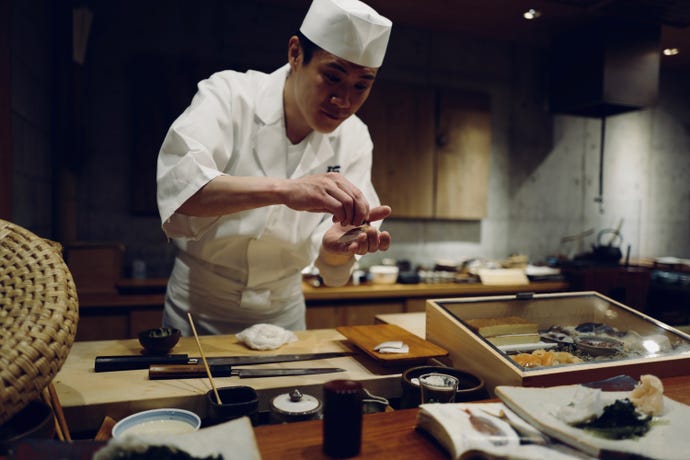
Take a half-day tour of this wonderful city with a local guide.
Meet your guide in the lobby of your hotel in the morning.
This morning you will have a private vehicle, driver & guide at your disposal as you explore Tokyo.
The Imperial Palace, also known as the Tokyo Imperial Palace, is the primary residence of the Emperor of Japan and the imperial family. Located in the heart of Tokyo, the palace is surrounded by beautiful gardens and serves as a symbol of Japan's rich history and cultural heritage. Although the palace is not open to the public, visitors can explore the surrounding gardens and enjoy the stunning views of the palace's historic buildings and moats. The Imperial Palace is a must-visit destination for anyone interested in Japanese culture, history, and architecture.

Enjoy a private sushi class at a local restaurant. A master chef will show you how to slice sashimi and make nigiri. With detailed instructions, you will make your own nigiri for lunch, using fresh ingredients purchased by the chef that morning.

Upon conclusion of your sushi class, you will be transferred back to your hotel in the early afternoon for an afternoon at leisure.
Enjoy another full day tour with your private guide.
Meet your guide at the lobby of your hotel in the morning.
Today you will have a private vehicle, driver & guide at your disposal for your day trip to Omiya & Kawagoe. You will first drive about 45 minutes north to Saitama.
Omiya Bonsai Village was started in 1925 by bonsai gardeners that left Tokyo after the 1923 earthquake. The area was attractive because of the clean water, available land and wonderful soil. The area was eventually renamed Bonsai Town and now features several bonsai nurseries where you can see and buy bonsai trees. Even the private homes in the area will have bonsai on display in their gardens.

Opened in 2010, the Omiya Bonsai Art Museum allows visitors to explore the history of bonsai and to see exhibits of trees that are hundreds and, in one case, possibly, over 1000 years old.
It is a wonderful entrance into Japanese culture.

During the Tokugawa Shogunate, Kawagoe was an important supplier of goods to the capital of Tokyo. The main street is home to traditional clay-walled warehouses called kurazukuri. Nowadays, they are home to many small shops and restaurants.
Along the street of the preserved warehouses is the Kawagoe Bell Tower, in Japanese Toki ni Kane. Traditionally, Japanese towns and cities were made of wood and the Bell Tower was built as a fire watchtower. The current structure was built in 1894 after the original structure was destroyed in the Great Kawagoe Fire in 1893. The building is a landmark and a symbol of the city.

Kita-in Temple is the head temple for the Tendai sect of Buddhism. The temple was destroyed by fire in the 17th century. The shogun at the time moved some of the buildings of Edo Castle to the temple grounds in an effort to aid the temple's rebuilding. Because of the damage caused to the temple in 1923, these buildings are the only scenset buildings of Edo Castle that are still in existence. Also, on the temple grounds are the Gohakyu Rakan or 500 Disciples of Buddha. These statues (there are actually 540) all have individual faces and clothing.
Return to your hotel in the evening.
Meet your English speaking assistant in the hotel lobby in the morning and transfer to Shinjuku station where you will be escorted to the express train platform to Matsumoto in 1st class.
Meet your guide at the platform as you disembark the train. They will know from which car you will be exiting.
Touring this afternoon will be done by private car.
This black fortress is one of only a handful of scenset feudal-era castles remaining in Japan and is a designated National Treasure. Its black coloring has also earned it the ominous nickname of “Crow Castle”.
Explore the museum — home to a vast collection of contemporary art, especially Yayoi Kusama, who was born in Matsumoto.
Located in the “Japanese Alps” at more than 1050 meters altitude, the Tobira Onsen Myojinkan Hotel welcomes you to discover its secret charm. It's a marvel of comfort and beauty in the Yatsugatake National Park, a beautiful protected forest surrounded by calm mountains that offer therapeutic views. Myojinkan has been receiving visitors since 1931, who come to connect with nature and enjoy the serene environment.

Tobira Onsen Myojinkan
Zen Standard King with semi-open air Private Bath
- Breakfast & Dinner included
No experiences have been planned for today, and you are free to explore the area at your leisure. You can enjoy walks in the countryside, head back into Matsumoto, or simply relax at your wonderful ryokan.

Meet your English speaking guide in the hotel lobby in the morning and transfer to Takayama (2.5 hours).
Visit one of Takayama’s two asaichi, or morning markets (one is located along the Miyagawa River and the other near Takayama Jinya). The morning markets are a delight for the senses, with scores of stalls selling local fruits, vegetables, pickles, herbs, spices, and other culinary ingredients, as well as local handicrafts sourced from Takayama’s renowned timber.

Explore Takayama Jinya, local government offices dating to the late 1600s that have been converted into a museum, and some of the most historic buildings in town. The superbly preserved buildings and grounds include kitchens and store rooms, residential areas, a court room, landscaped courtyards, and more.
Cross the Miyagawa River and explore Old Town on foot, especially Sannomachi Street, which features homes, coffee and tea houses, and sake breweries, some of which have been in continuous operation for centuries.

Visit the Festival Float Exhibition Hall, which features a revolving exhibit of ornate festival floats, or ‘yatai’. The floats play an integral role in the Takayama Matsuri Festival, which is known as one of the most colorful and beautiful displays of culture and history in the country and takes place twice a year.
Stop by one of the many breweries to sample some sake.
Upon conclusion of your tour, proceed by private transfer to Kanazawa (approximately 2 hours).

The Hyatt Centric Kanazawa is a contemporary hotel located in the heart of Kanazawa, a historic city known for its traditional arts and crafts. This hotel offers stylish and comfortable accommodations with modern amenities, including an on-site restaurant and bar, fitness center, and rooftop terrace with stunning views of the city.

Hyatt Centric
Deluxe King Room
- Breakfast included
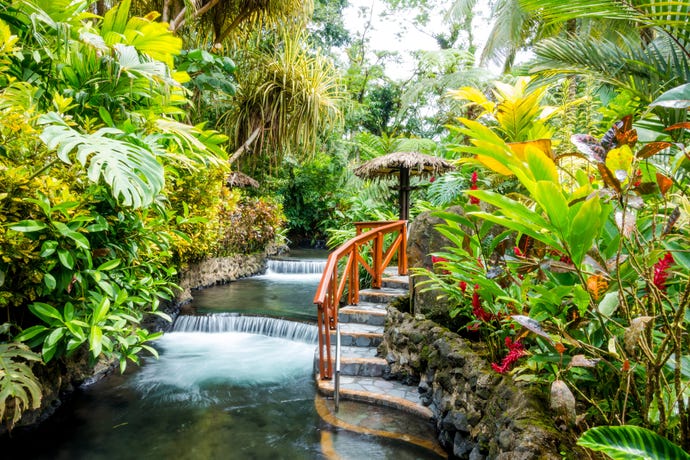
Meet your guide at the lobby of your hotel in the morning.
Today you will have a private vehicle, driver & guide at your disposal as you explore Kanazawa.
Kenrokuen Garden is a beautiful traditional Japanese garden located in Kanazawa, Japan. It is one of the Three Great Gardens of Japan and is renowned for its breathtaking landscapes, seasonal beauty, and historic architecture. The garden features a central pond, winding paths, and a variety of trees and flowers that change with the seasons, making it a popular destination for both locals and tourists alike. Visitors can also enjoy tea ceremonies, traditional Japanese music performances, and other cultural events that take place throughout the year. Kenrokuen Garden is a must-visit destination for anyone looking to experience the beauty of Japanese gardens and immerse themselves in the country's rich cultural heritage.
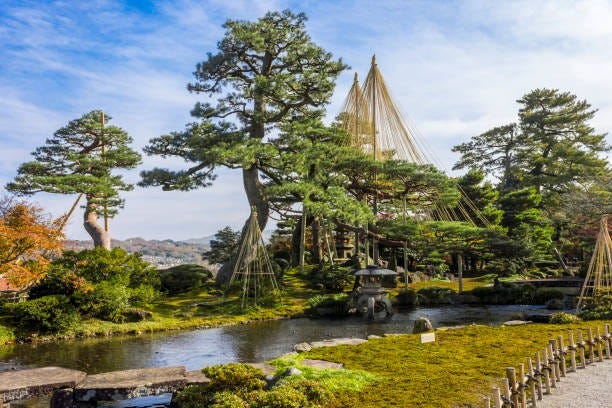
From 1583 to the end of the Edo Period, Kanazawa Castle was the seat of a powerful clan, lords of Kaga, a feudal domain ranking second only to the Tokugawa possessions in terms of size and wealth.

Take a glimpse of local lifestyle. There are approximately 170 specialty food shops and restaurants, especially quality seafood from the cold Japan Sea and fresh vegetables called Kaga Yasai.

Perhaps the most photogenic area in all of Kanazawa, Higashichayagai is an old style street lined with tea houses (higashi means "eastern", chaya means "tea houses", and gai means "neighborhood"). While some of these tea houses are now residences, many of them have been repurposed as boutique shops. The area offers an abundance of unique tasting opportunities and arts and crafts.
For a less crowded stroll, we recommend moving across the street to Kazue-machi. While the area doesn't offer as many options for eating and shopping, it does allow you to enjoy the unique architecture and street design at a more leisurely pace.
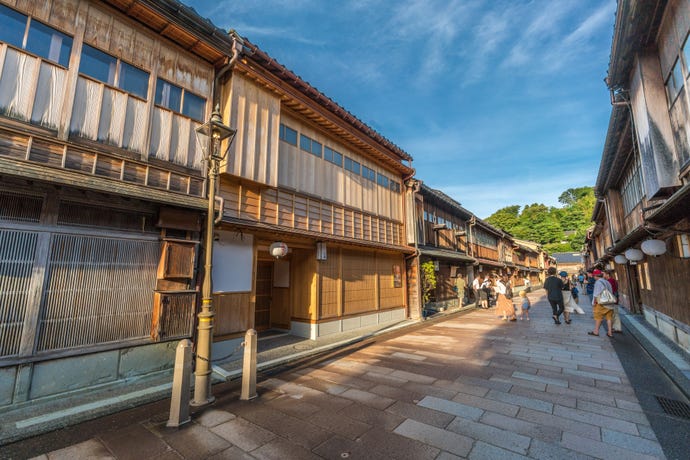
The 21st Century Museum of Contemporary Art is a modern art museum located in Kanazawa, Japan. It opened its doors in 2004 and is known for its innovative design, featuring a circular building with a large, open-air courtyard in the center. The museum houses a collection of contemporary art from both Japanese and international artists, with exhibitions that range from traditional paintings and sculptures to multimedia installations and interactive exhibits. Visitors can also participate in workshops, attend lectures, and enjoy a variety of performances and events throughout the year.

The DT Suzuki Museum is a small, but beautiful, space dedicated to a prominent local philosopher.
This relatively hidden space is popular with locals as a spot to stop by and refresh during the busy day.
In addition to the refreshing spaces, you'll learn about the philosopher, whose works were instrumental in the spread of Zen Buddhism beyond Japan's borders.
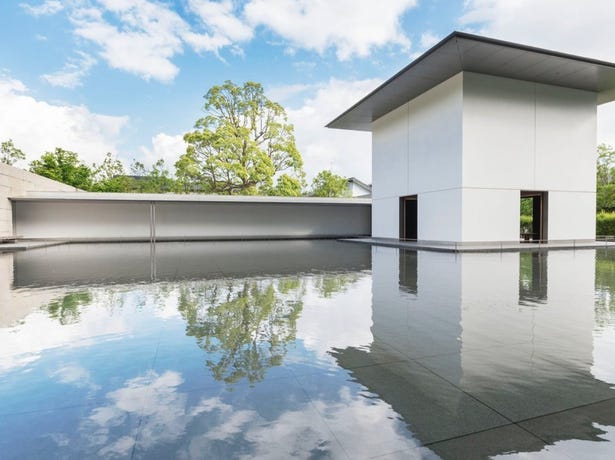
Return to your hotel in the evening for some free time.
Meet your guide in the lobby of your hotel in the morning.
Today you will have a private vehicle, driver & guide at your disposal as you explore the Noto Peninsula.
The Noto Peninsula Ishikawa Prefecture is rich in nature. The entire peninsula is designated as a national park.
After a couple of hours' drive, you will arrive in Wajima in time for the Wajima Morning Market. The market boasts more than 200 stalls and has more than 1,000 years of history. Then visit the picturesque Semmaida Rice Terraces. With a height of 50 meters, the usually flat rice field is divided into 1,004 smaller fields of a size of 18 square meters. Because of the restriction of the landscape, modern agricultural machinery can’t be used, so cultivation is done by traditional manual work. This is why the Shiroyone Senmaida Rice Terraces were registered in the Globally Important Agricultural Heritage Systems in 2011.
Afterward, transfer to Hatago Iwa - two rocks in the sea connected by a thick rope.
Transfer back to Kanazawa city, stopping along the way to enjoy a sake tasting at traditional sake breweries.

Meet your guide in the lobby of your hotel in the morning.
Today you will have a private vehicle, driver & guide at your disposal as you tour en-route to Kagaonsen.
Observe the Great Cedars of Kayano, trees that are over 2,300 years old.

Enjoy incredible views of Kakusenkei from the bridges of Ayatori-hashi and Korogi-bashi, the latter of which is an all-cypress bridge, allowing visitors to enjoy scenic views of Yamanaka Onsen.

Visit the beautiful Natadera Temple, established in 717 AD. The scenset around the temple is also breath-taking.

This is the site of a historic kiln that has been used ever since the production of Kutani porcelain was restarted in the late Edo period in 1824. To pass this cultural legacy on to future generations, the kiln site was turned into a museum in 2002. In addition to displaying the remains of a climbing kiln that was used for over a century, the museum also features a new climbing kiln built to replace it and the former home of the kiln master, which is still used as a pottery workshop today.
A serene and intimate ryokan (traditional Japanese inn) is located in the picturesque town of Kagaonsen, known for its hot springs and beautiful natural surroundings.
From the exquisite cuisine to the relaxing outdoor hot springs and spa, the ryokan provides an authentic and unforgettable experience of Japanese hospitality and culture.
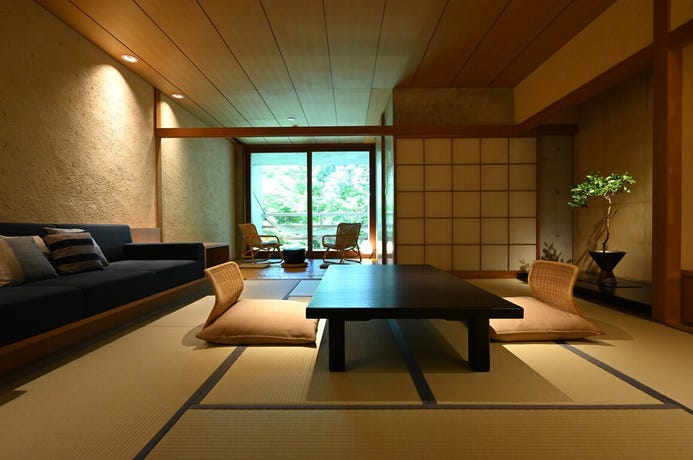
A high-ranking executive
Executive Suite
- Breakfast & Dinner included
Spend your day at leisure relaxing at your ryokan, or exploring the surrounding countryside.

After meeting in the lobby of your hotel in the late morning, transfer via hotel shuttle bus to Kagaonsen Station.
Important: Please reconfirm this transfer with the staff at your ryokan.
Kyoto is the nation’s former capital and was the residence of the emperor from 794 until 1868. With 2,000 religious buildings, including 1,600 Buddhist temples and 400 Shinto shrines, as well as palaces, gardens, and associated architecture, it is one of the best-preserved cities in Japan and has 17 UNESCO World Heritage sites. Kyoto represents the “Japan of old” and beyond the high-rise skyscrapers built as a monument to progress, the real monument to Japan’s historical and cultural past can be found in the city’s narrow alleyways where tea houses abound and kimono-clad geisha hurry around.
Meet your guide at the platform as you disembark the train. They will know from which car you will be exiting.
Touring this afternoon will be done by private vehicle.

Sanjusangendo is a historic Buddhist temple located in Kyoto, Japan. The temple is famous for its impressive main hall, which features 1,001 statues of Kannon, the goddess of mercy. The hall is the longest wooden structure in Japan and dates back to the 12th century.
Visitors to Sanjusangendo can marvel at the intricate details of the temple's architecture and the beauty of the Kannon statues, which are said to represent the many faces of mercy. The temple also features a beautiful garden and several smaller shrines and halls that offer a peaceful and serene atmosphere for meditation and contemplation.

Gion is a historic district located in the heart of Kyoto, Japan. The area is famous for its well-preserved traditional architecture and for being the center of Kyoto's geisha culture.
Stroll through the narrow streets lined with tea houses, shops, and restaurants, and catch a glimpse of the geisha and maiko (apprentice geisha) as they move between their appointments. The district is also home to several historic temples and shrines, including the Yasaka Shrine, which is one of the most famous in Kyoto.

Situated in Kyoto's historic Higashiyama district is Kiyomizu Temple. For over 1200 years people have flocked here seeking comfort and guidance, offering up prayers in its splendid halls.
Sannenzaka is a pedestrianized area of Kyoto providing a welcome escape from the modernity of the rest of the city. The area is home to many restaurants and teahouses and has a real old fashioned atmosphere. It's a great place to relax and simply watch the world go by.
Your tour will conclude in the late afternoon with a transfer to your hotel.
HOTEL THE MITSUI KYOTO is located in the heart of Kyoto – adjacent to Nijo-jo Castle on the site of the Kyoto home of the Kitake, the executive branch of the Mitsui Family - a property the family maintained for over 250 years. The tranquility and storied history of the location is reflected in each of the guest rooms. A modern reimagining of the traditional Japanese tearoom, the 161 guest rooms feature carefully chosen natural materials elevated using artisanal skills.

Hotel The Mitsui
Deluxe King
- Breakfast included
Meet your guide in the lobby of your hotel in the morning.
Today you will have a private vehicle, driver & guide at your disposal as you explore Kyoto.

Kinkakuji, or the Golden Pavilion, is one of Japan’s iconic sites. The temple grounds first began as a small villa in 1224 and was converted to a Zen temple shortly after. Like so many other historical landmarks in Japan, the temple has unfortunately suffered destruction from fires in its history. The building, as it stands today, is a historically accurate reconstruction of the temple before it burned down from arson in 1950.

The bamboo forest offers paths for walking or biking. It is a must see for those visiting Arashiyama. The bamboo grown here has been used for centuries for creating crafts, such as tea whisks, sake cups, baskets and many others. Experience a roughly 30 minute rickshaw ride through the Bamboo grove.

With a history dating back nearly 700 years, Tenryuji is one of Arashiyama's most visited sites, and for good reason. While the building complex has suffered from fire damage throughout history (like much of Japan), the stunning gardens remain in their original form. As you stroll through the garden, both from within the temple and on the garden paths, you'll move from the pond, which symbolizes a large lake, up the mountain and into the forest (where multiple cherry trees can be found). As you exit the temple, you'll come to the famous bamboo forest.
Founded in 1596, this mountainside temple is filled with small, attractive buildings, gates, and a quiet atmosphere. Its many maple trees and moss are located next to the paths and stairs all around the grounds.

While many religious sites have a somber tone, Otagi Nenbutsu-ji is a fun twist on the Japanese temple experience. Here you'll find well over 1,000 small stone statues, called rakan, often depicting humorous and lighthearted disciples of the Buddha.
Your tour will conclude at about the end of the afternoon today.
Meet your guide in the lobby of your hotel in the morning.
Today you will have a private vehicle, driver & guide at your disposal as you explore areas south of Kyoto.

Visit Fushimi Shrine, which boasts a thousand red torii gates donated by worshippers. The shrine was a filming location for the movie "Sayuri," based on the best-selling novel "Memoirs of a Geisha".

Uji is a city highly regarded for its tea. There are some established tea shops and you can enjoy tasting freshly brewed green tea.

Visit Byodoin Phoenix Hall, registered as a Japanese national treasure and featured on the 10 JPY coin. The picturesque architecture and its garden with pond is believed to represent the paradise in Buddhism.

Head back to Kyoto and experience a private tea ceremony at a local temple. A tea master will show you how to serve tea, using special utensils. Sweets will be served to accompany your tea.
Your tour will conclude in the late afternoon today.
No experiences have been planned for today, and you're free to explore Kyoto at leisure. You may wish to visit Nishiki Market or Nijo Castle.


Meet your English speaking driver in the hotel lobby in the morning and transfer to Kyoto station (20 minutes) where you will be escorted to the bullet train platform to Hiroshima in 1st class.
Meet your guide at the platform as you disembark the train. Your guide will know from which car you will be exiting.
Touring today will be done by private car. You will proceed by private vehicle & shared ferry to the island of Miyajima.
This is one of Japan's most iconic sites, and the shrine's vermillion coloured architecture looks as if it were floating in the sea.

As you explore the island you will find hidden temples and pagodas. A temple is located at the foot of Mount Misen, and is one of the most important temples of Shingon Buddhism. The temple features many different buildings, statues, and other significant religious objects, such as the Kannon-do Hall, the Maniden Hall, a sand mandala, a tea room, and a cave filled with 88 icons that represent the temples of the Shikoku Pilgrimage.

Transfer back to Hiroshima city by shared ferry and private car. You will arrive at your hotel in the evening.


Stay where all of Japan comes together at a hotel in Hiroshima. Situated next to JR Hiroshima Station with direct access to the bullet train and bus terminals, this hotel is ideal for business trips, sightseeing visits and family stays. Stay in luxury as you explore Hiroshima's historic sites and architecture. Find total comfort in the guest rooms, including suites, all of which feature a comfortable sleep experience.
Sheraton Grand Hiroshima
Deluxe Corner King
- Breakfast included
You are free to explore Hiroshima at your leisure today. It's a very easy city to explore independently, and much of your focus will be on the Peace Memorial Museum.
The touring below is suggested, and nothing has been booked.

Peace Memorial Park and Museum is likely to be the most moving part of your trip to Japan. The spacious park is full of memorials dedicated to those who lost their lives on August the 6th 1945, as well as those who later succumbed to diseases, and is also home to the famous Atomic Bomb Dome.
Stroll back from the museum along the Hondori - Hiroshima City's long covered shopping street where you can find a plethora of exciting shops and boutiques.

Head to the top of Orizuru Tower where you can enjoy views of the city, as well as a lesson in Origami.
Meet your English speaking assistant in the hotel lobby in the morning, who will walk you to Hiroshima Station (5 minutes).
Meet your guide at the platform as you disembark the train. Your guide will know which car you will be exiting.
Touring this afternoon will be done by private vehicle.

Stroll through the Shinsaibashi shopping arcade to Dotonbori Canal, famous for huge billboards & neon lights. Try Osaka-style local snacks such as Takoyaki and Okonomiyaki. Your guide will explain about local delicacies. If you're thirsty, stroll through Hozenji Yokocho bar alley!

Osaka Castle is a historic landmark and one of the most famous attractions in Osaka, Japan. The castle dates back to the 16th century and was built by a renowned samurai warrior and statesman. The castle played a significant role in Japan's history, serving as a military stronghold and a symbol of power and prestige for the ruling elite.

Your tour will conclude in the late afternoon with a transfer to your hotel.
Welcome to Conrad Osaka, your 'address in the sky.' With a commanding presence on Nakanoshima between the Dojima and Tosabori rivers, this sleek luxury hotel offers incredible views of the water and Osaka from all guest rooms and public areas.
Connect easily with West Japan's largest city - walk to shops and offices in Umeda, and immerse in local food and culture in Namba. The hotel team enriches your stay with intuitive, tailored service.

Hotel Name
Deluxe King Room
- Breakfast included
Meet your guide at the lobby of your hotel in the morning.
Today you will have a private vehicle, driver & guide at your disposal for your day trip to Nara.

Your first stop in the ancient capital of Nara will be Todaiji Temple, where the Great Buddha is housed in the largest wooden structure in the world.

Nara Park is a large park in the center of the city. It was established in the late 19th century and is surrounded by many of Nara's most famous sightseeing spots. The park is home to over one thousand deer. Once considered the messengers of the gods, they are now a symbol of the city and are now known as a natural treasure. Deer crackers are for sale around the park. The deer are tame and even polite, but can be aggressive at times!
Naramachi is the old merchant district of the city. There are many traditional residential buildings and warehouses that have been preserved and are open to the public. A wide variety of boutiques, shops, cafes, restaurants and museums scattered throughout the district's narrow streets. It gives a wonderful feeling of old Japan. The area is also known for the World Heritage Site of Gangoji Temple. There is a small sake brewery where visitors can sample the goods and a small traditional toy museum that can be enjoyed by people of all ages.

Visit a local sake brewery and sample some freshly brewed sake.
You will return to your hotel in the early evening.
Meet your English speaking driver in the lobby of your hotel at midday and transfer to KIX Osaka Airport (about 45 minutes).
Depart on your long-haul flight home. We can also transfer you back to Tokyo for your international departure, if needed.

Thank you for traveling with us.
We hope that we were able to help you build lasting memories of your time in the Land of the Rising Sun.
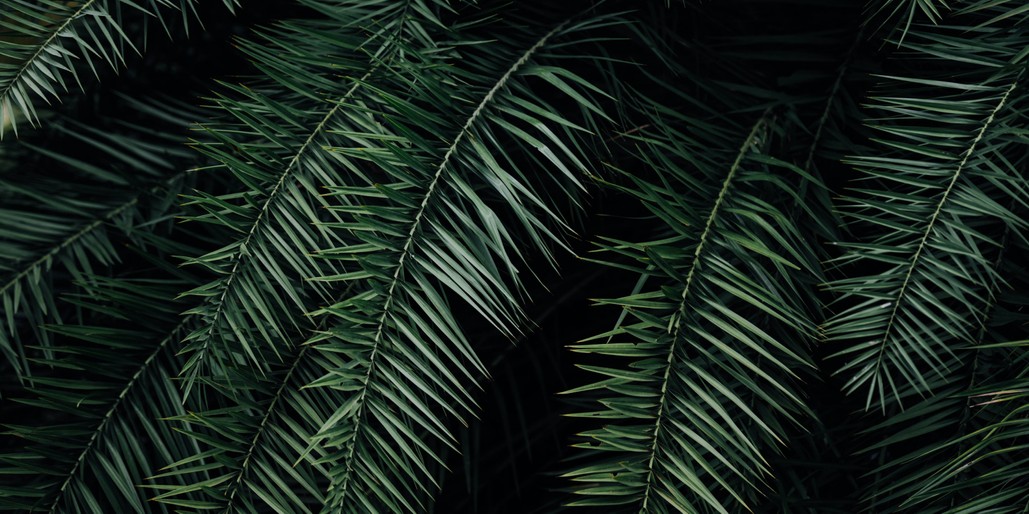
scenset invests in making the world a better place. scenset will offset the fuel used during the trip. On top of that, an extra 10% will be offset to make the trip a carbon-positive experience.
Currently, support is provided for Gold Standard Climate+ Projects from the Gold Standard Foundation.
Please refer to our terms & conditions here.